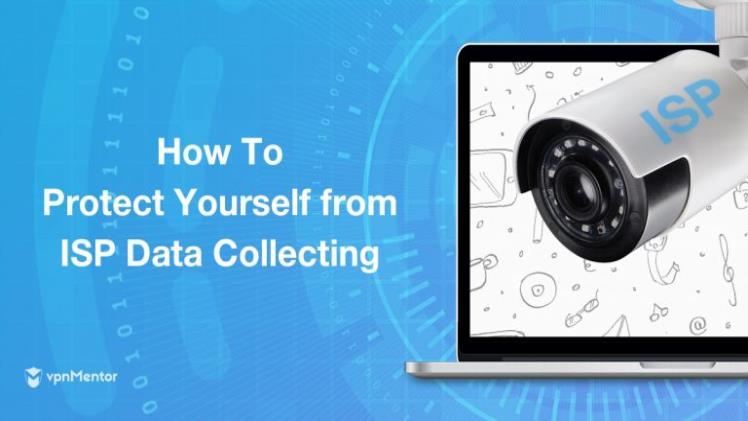
Paying your monthly internet bills is not just about getting access to the internet. You need a lot more from your internet service provider (ISP), including device security and data privacy. However, there is a chance that your ISP may monitor your online activities to keep an eye on the type of websites you visit and apps that run on your device. This information can be stored and sold to third-party companies in exchange for money. Whereas the companies that purchase your data may use it to devise their strategies for upcoming marketing campaigns.
This way, your ISP may compromise your data privacy without your consent. While this can be inevitable in certain situations, you can take a few precautionary measures to ensure that your data remains protected from your ISP at all costs.
4 Ways to Ensure Your Online Privacy from Your ISP
We have curated a list of ways to protect your browsing history and overall data privacy from your ISP:
Use a VPN before Visiting Any Website
With a virtual private network (VPN), you can limit the amount of data that can be collected by your ISP, government, or any third-party company. Besides, it enables users to access restricted content without risking their privacy. See all information about Sw418
Here are some of the best VPNs you can go for:
ProtonVPN: It can help secure your confidential data, including passwords using an encrypted VPN tunnel, which makes it the safest option for public Wi-Fi networks as well.
NordVPN: It provides a secure platform to access restricted websites and apps and detect malware from files downloaded over the internet.
CyberGhost: It offers access to more than 8,800 VPN servers and can secure 7 devices at the same time.
Visit HTTPS-Secured Websites Only
With end-to-end encryption, your browsing history remains safe from hackers or anyone tracking your online activities. All you need to do is, enable HTTPS on the website you are trying to access. Besides, it can help minimize the possibility of data breaches or man-in-the-middle attacks, ensuring that your sensitive information stays private. Even if you have signed up for TV and internet packages, you can still make use of this feature to secure your streaming history from your ISP. So, the next time you visit a website, make sure that you have HTTPS enabled on your browser.
Use DNS
Using a domain name system (DNS) is a surefire way to avoid the risk of passing on your browsing information to your ISP. DNS works like a directory for the websites you visit; hence, as soon as you enter a website in your browser’s address bar, it is fetched through DNS to display it on your screen. More Info About Dumbbells
Switch to an ISP That Respects Your Privacy
If your current ISP does not uphold your data privacy, then it is time for you to switch to HughesNet. It ensures that your connection remains secure. Plus, it offers high-speed internet service without imposing any hard data limits. Whether you need it for your home or office network, it provides just the right speeds for all online activities.
Does Private Browsing Protect Your Information from ISP?
While most people believe that browsing in incognito mode can prevent their ISP from tracking their browsing history. However, this is not true! It may come off as a surprise to many people, but private browsing is not as private as you may think it to be! Your ISP can still access your browsing history. But, if you are browsing the web on a public computer at a library, café, or lab, then private browsing can protect your information from the rest of the people using the same computer. visit here for more info about WPC2026
What If I Avoid Entering Any Personal Information Online?
It’s up to you whether you want to add personal information, such as email address, password, credit card details, or contact information on a website. However, by doing so, you can’t prevent your ISP from accessing your browsing history. As long as you are surfing the web without enabling encryption, your ISP will get every bit of detail regarding your online activities. In such cases, the only pocket-friendly yet convenient way to ensure your privacy is to use a VPN.
Final Thoughts
Keeping your personal information safe and secure is your right! You shouldn’t worry about your data being sold to third-party companies or organizations without your permission. While you may find it hard to believe that your ISP can potentially threaten your online privacy, your best bet is to install a VPN. However, if it doesn’t work out for you, then we have listed many other ways to protect sensitive information from your ISP. Follow our advice for a safer browsing experience, regardless of your internet provider’s privacy policies.
